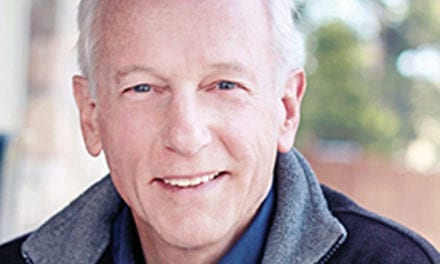Peggy Noonan recently wrote an opinion piece for the Wall Street Journal titled “The Lonely Office Is Bad for America.”
Based on the title alone, I was pretty sure that I would be in agreement. On the surface that might seem odd since I walked away from the corporate tech environment almost 40 years ago and have been self-employed ever since. To that point, I left corporate America for many reasons, but having to work in an office was not one of them. In fact, not a day goes by that I don’t think about how much easier my coding projects would be if I had
access to another programmer down the hall… not to mention a whole department.
Peggy muses, “My guess is the end of the office will lead to a decline in professionalism across the board. You learn things in the hall from the old veteran.” Wow, does that bring back positive memories of my first job with
the Bunker-Ramo Corporation. I was a green new grad joining a dozen other inexperienced new engineers. I would soon learn that this group had, somewhat derisively, been named The Youngbloods by the older generation of managers and senior engineers, proudly called The Old Farts. As time went on, we were often reminded by The Old Farts that we were mere lumps of clay who they would mold into fine young engineers… some day.
What’s most pertinent to my thoughts on the value of an office environment is that most of my memories of being a Youngblood are not about being taught engineering, but about the many freely given life lessons that perhaps shaped who I am today. There’s the real value of an office environment. Life lessons are not taught by a manager or senior employee who calls you into his office or dials you up on a Zoom call and says, “Here’s life lesson number 4.” Life lessons are learned mostly through advice or observations that just happen in the hallway, the cafeteria, or while traveling together on business.
A thriving office environment isn’t limited to employees of corporations. One can be self-employed and still work in an office filled with other self-employed individuals. An example that I experienced for 12 years is real estate. The remote working concept has really caught on with realtors who commonly preach that every hour spent in an office is an hour not selling. Some realtors have taken the next logical step of having no office at all and conducting meetings with buyers and sellers entirely online or in restaurants. A non-office setup works well for experienced realtors. But, from a societal point of view, new agents cannot benefit from passed-down wisdom.
As a new realtor I would have been lost without what I learned by simply being in the same office with the rock stars. Tupper Briggs taught me more than he will ever know.
So yes, I agree with Peggy that the loss of office life is not only bad for America, it will be bad for American culture.



